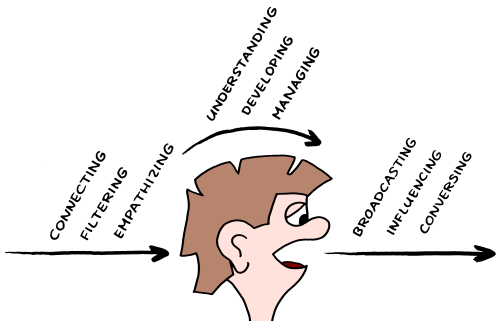Success at the Speed of Change-Power Up and On
Imagine USING challenges to learn, share and develop solutions. Yes, success at the speed of change!
[google-translate]
Leading and succeeding at the speed of change means moving your people from asking who did it, to what can we do about it. It means investing time to solve the problem, and determining how to avoid similar problems in the future. It means getting back on track by focusing on solutions. It means being able to stop destructive conflict, hidden agendas, selfishness, values mis-alignments with a commitment to shared goals and objectives.
Leading and succeeding means optimizing strengths AND USING challenges to build the Q power that drives passion, purpose, potential at the speed of change: It means seeing your strengths and challenges with new eyes. Eyes that will help you build all 3Q™ strengths: IQ enhanced focus, potential, action-ability under pressure, EQ/EI-emotional management, improved communication, leadership, SQ-values
alignment- the glue that holds everything together. Yes, that rarely talked about, but critical spiritual quotient-your alignment with your highest power and greatest good.
Four Leadership Questions:
What are your core values? How are they expressed at work?
What does success really mean to YOU? What does success mean to your executive team?
What do you need to communicate for greater influence & success?
How will you get inspired and inspire others at a speed of change that will continue to accelerate?
ONE ANSWER: Start seeing challenges with new eyes; eyes that build YOUR 3Q Edge™
Eyes that will allow you to embrace challenges as learning experiences, failures as stepping stones to success, and communication problems as ruts in the road that need to be addressed and fixed. Eyes that will allow you to develop your Q strengths by moving away from being reactive and embracing the ability to respond to challenges by managing change and not waiting for change to manage or lead you.








